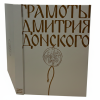
The British foreign secretary has accused China of deliberately misleading the world when it passed its new security law in Hong Kong last year in the wake of the latest crackdown on the opposition in the territory.
Dominic Raab reiterated the UK’s offer to holders of British national (overseas) passports in the city to come and live in Britain, and said: “The mass arrest of politicians and activists in Hong Kong is a grievous attack on Hong Kong’s rights and freedoms as protected under the joint declaration,” which set out the terms of the return of the territory from the UK to China in 1997.
“These arrests demonstrate that the Hong Kong and Chinese authorities deliberately misled the world about the true purpose of the national security law, which is being used to crush dissent and opposing political views.
“The UK will not turn our backs on the people of Hong Kong and will continue to offer British nationals (overseas) [citizens] the right to live and work in the UK.”
As international criticism mounted, the last British governor of Hong Kong has told the EU not to go ahead with an economic deal with China.
The arrest of 53 people on charges of “subversion” led Lord Patten to tell the EU it would forfeit its right to be treated as a serious global economic and political power if it went ahead with the draft investment deal.
The draft has yet to be ratified by the European parliament, and Germany, the lead advocate of the deal, will come under intense pressure to justify the closer economic ties.
Dozens of Hong Kong pro-democracy figures arrested in sweeping crackdown
Read more
Patten, in remarks designed to resonate in Germany, said: “It is worth remembering, for all European politicians wherever they come from, that the Jewish community around the world has been outspoken about Xinjiang and in particular has drawn attention to the similarities between what is happening in that region today and the Holocaust in the 1940s.”
He added: “If this deal goes ahead it will make a mockery of Europe’s ambitions to be taken seriously as a global political and economic player. It spits in the face of human rights and shows a delusional view of the Chinese Communist party’s trustworthiness on the international stage.
“It is surely inconceivable that the European parliament can support the miserable draft deal that the European commission wants to sign with Beijing.
“It is a massive strategic blunder at a time when [incoming] President [Joe] Biden will be seeking to put together an international partnership of liberal democracies to deal with the bullying loutish behaviour and assault on our international rules by Chinese Communists. We should not be seeking to contain China but to constrain the Chinese Communist party.”
The EU called for the release of the arrested opposition figures on Wednesday and said it was considering further sanctions.
“We are currently analysing the situation to see how we might need to react. There are other possibilities open to us, sanctions for example,” the European commission spokesperson Peter Stano told journalists.
“We call for the immediate release of the arrested people,” Stano said.
Lisa Nandy, the Labour foreign affairs spokesperson, called for the British government to make a Commons statement on the arrests.
“Democracy is being dismantled in Hong Kong,” she said. “China is undermining the rights and freedoms guaranteed under the Basic Law [Hong Kong’s mini-constitution] and further disregarding its commitments under the joint declaration.”
Her deputy, Stephen Kinnock, urged ministers to end the delay in the use of sanctions against individual Chinese officials behind the suppression.
The chair of the UK foreign affairs select committee, Tom Tugendhat, also challenged the EU, saying: “The EU’s China deal undermines freedom and democracy.”
Norbert Röttgen, a candidate for the German CDU leadership and possible successor to Angela Merkel, said the EU could not ignore China’s methods, including breach of contract and suppression.
Leading members of the European parliament demanded a response from the commission, including a credible explanation of how the commitments made by China in the investment deal could be policed and enforced.
Sabine Weyand, the lead EU commission official behind the deal, had only 24 hours earlier defended it partly on the basis that the EU was being asked to apply to its economic relationships moral standards not required of other blocs or countries.
She said the EU had used its negotiating leverage to obtain “WTO+ commitments on level playing field, market access and on sustainable development that benefit other partners as well, and should act as a springboard for global disciplines”.
Other international politicians condemned the arrests.
Taiwan’s foreign minister, Joseph Wu, tweeted: “The mass arrest in Hong Kong comes as a deep shock to those who treasure freedom.”
Australia’s foreign minister, Marise Payne, said the Australian government was concerned and was monitoring developments.
The Democratic chair of the US House foreign affairs committee, Gregory Meeks, said: “Beijing’s national security law is being used to ruthlessly attack Hongkongers – last week by sentencing democracy activists, this week by arresting dozens of pro-democracy politicians for participating in last year’s LegCo [legislature] primaries.”
-
Additional reporting by Helen Davidson






















































Свежие комментарии